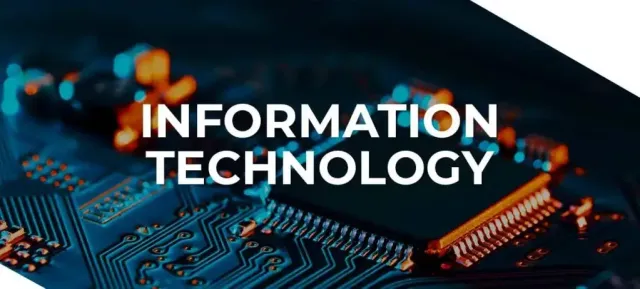Information Technology: An Overview
Information Technology (IT) refers to the use of computers, software, networks, and other digital tools to manage, process, and distribute information. It plays a crucial role in today’s society, impacting every aspect of business, education, healthcare, and daily life. The rapid advancement of technology has transformed how we communicate, work, and interact with the world around us.
Key Components of Information Technology
- Hardware: This includes physical devices such as computers, servers, networking equipment, and storage devices. Hardware forms the backbone of IT infrastructure.
- Software: Software refers to the programs and applications that run on hardware. It can be categorized into:
- System Software: Operating systems (like Windows, macOS, Linux) that manage hardware resources.
- Application Software: Programs that perform specific tasks for users, such as word processors, spreadsheets, and database management systems.
- Networks: Networking involves connecting computers and devices to share resources and information. This includes local area networks (LAN), wide area networks (WAN), and the internet, which enables global communication.
- Databases: Databases are structured collections of data that allow for efficient storage, retrieval, and management of information. They are critical for businesses to maintain records, perform analytics, and support decision-making.
- IT Services: IT services encompass a wide range of support functions, including help desk support, system administration, network management, and cybersecurity.
Importance of Information Technology
- Enhanced Communication: IT has revolutionized communication through email, instant messaging, video conferencing, and social media. These tools facilitate real-time communication and collaboration across geographical boundaries.
- Increased Efficiency and Productivity: Automation of routine tasks through software applications allows businesses and individuals to focus on more complex tasks, resulting in increased productivity.
- Data Management and Analysis: IT enables organizations to collect, store, and analyze vast amounts of data. Data analytics tools help businesses make informed decisions, identify trends, and improve operations.
- Improved Access to Information: The internet provides vast amounts of information at our fingertips. Educational resources, research papers, and online courses are readily available, promoting lifelong learning.
- Innovation and Development: IT drives innovation in various sectors, leading to the development of new products, services, and business models. Technologies such as artificial intelligence, cloud computing, and the Internet of Things (IoT) are shaping the future.
Challenges in Information Technology
- Cybersecurity Threats: With the increase in digital data, cybersecurity has become a critical concern. Organizations face threats from hackers, malware, and data breaches, making it essential to implement robust security measures.
- Rapid Technological Changes: The fast pace of technological advancement can make it challenging for businesses to keep up. Organizations must continually adapt to new technologies to remain competitive.
- Data Privacy Concerns: The collection and use of personal data raise privacy issues. Regulatory frameworks like GDPR aim to protect individuals’ data rights, but compliance can be complex for organizations.
- Digital Divide: Not everyone has equal access to technology. The digital divide can hinder opportunities for education and employment, particularly in underserved communities.
- Dependency on Technology: As society becomes more reliant on technology, the consequences of system failures or outages can be significant, affecting businesses and individuals alike.
Future Trends in Information Technology
- Artificial Intelligence (AI): AI technologies are transforming various industries by enabling automation, enhancing decision-making, and improving customer experiences.
- Cloud Computing: The shift towards cloud-based services continues to grow, providing scalability, flexibility, and cost savings for businesses. This allows organizations to access data and applications from anywhere.
- Internet of Things (IoT): The proliferation of connected devices is creating smart homes, cities, and industries. IoT enhances efficiency and data collection across various sectors.
- Blockchain Technology: Blockchain provides secure and transparent transaction methods, with applications in finance, supply chain management, and more.
- Cybersecurity Innovations: As cyber threats evolve, the IT industry is focusing on advanced security measures, including machine learning-based security solutions and improved encryption methods.
Conclusion
Information Technology is an integral part of modern life, shaping how we communicate, work, and access information. Its impact spans across various sectors, driving innovation and improving efficiency. While challenges such as cybersecurity and data privacy persist, the future of IT holds promising advancements that can lead to a more connected and efficient world. Embracing technology responsibly will be essential in maximizing its benefits while addressing potential risks.





